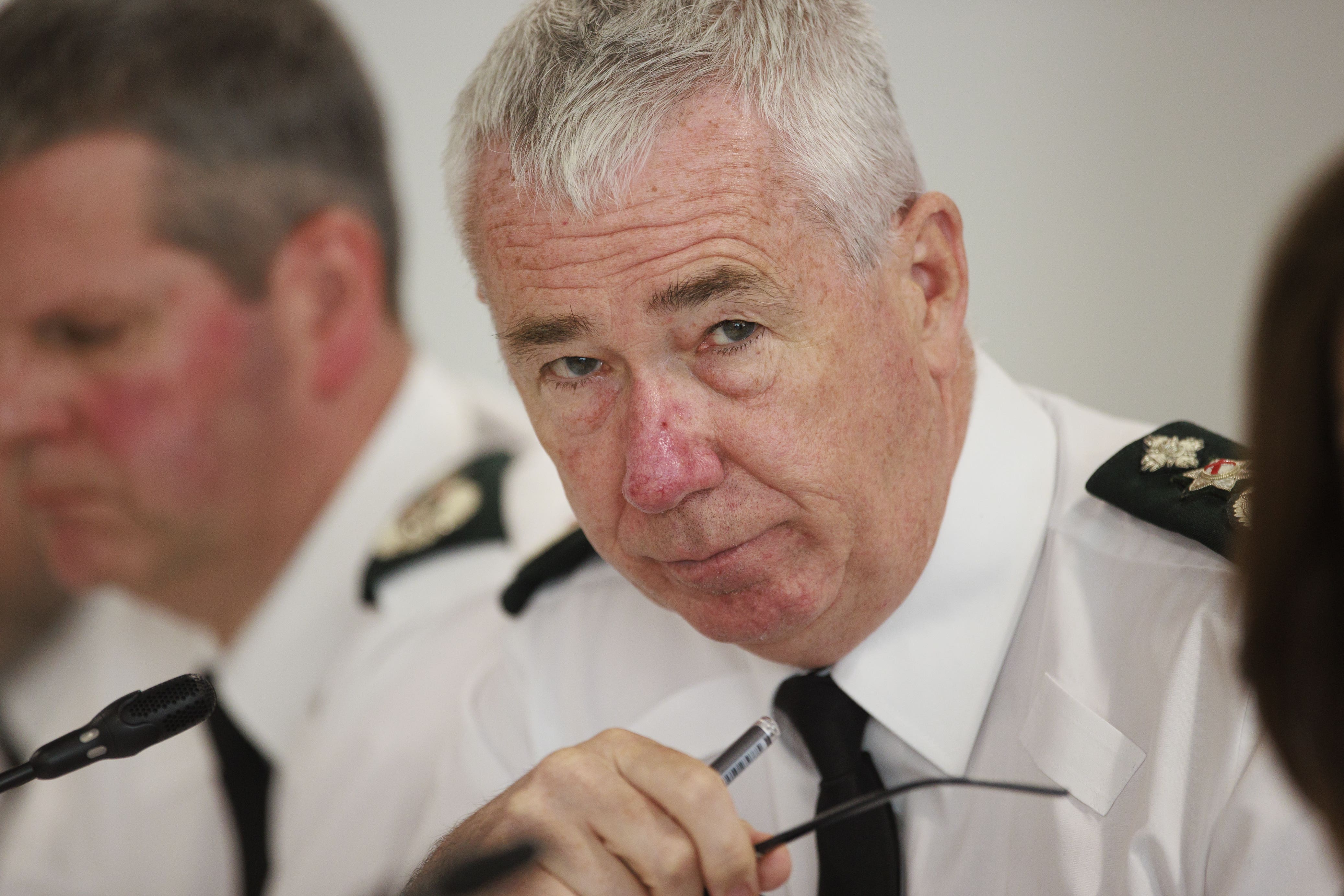NI police working on ‘robust response’ to removing racist posters and graffiti
Chief Constable Jon Boutcher said police intend to send ‘an incredibly clear message about these issues’.

Police in Northern Ireland are working on a “more robust approach” to dealing with racist posters and graffiti.
Chief Constable Jon Boutcher said he wants an “incredibly clear message sent about these issues”.
Belfast was rocked with disorder following an anti-immigration protest on August 3 with rioting and businesses owned by members of the minority ethnic communities were attacked.
While the scale of the disturbances have not been seen since, there have been a series of incidents including assaults, graffiti and attacks on homes and businesses.
Earlier this week, police removed an anti-immigration sign from a roadside in the Co Tyrone village of Moygashel.
On Thursday morning, police said they were investigating reports of ongoing racial abuse directed at children in south Belfast. They appealed for information around reports in the Teutonic Gardens area of verbal racial abuse and anti-social behaviour by a group of young people directed at a woman and two young children, over the last two months.
Meanwhile it also emerged this week that provisional police figures indicate that race hate incidents have risen by a third over the last year.
Speaking a meeting of the Northern Ireland Policing Board on Thursday, Mr Boutcher said the Police Service of Northern Ireland was working on a “more robust response” to removing racist posters and graffiti quickly.
He described recent disorder as having been a “watershed moment”.
“There is sufficient legislation to deal with these issues that allow us to quite meaningfully deal with this,” he said.
“You will see a more positive response.
“I am conscious of freedom of speech issues, which are often rightfully put in front of me, but where things reach a threshold of engaging criminal offences, we should deal with them quickly and send a very clear message about these issues.”
To date, there have been 48 arrests around the disorder, including three in Londonderry on Thursday morning, with 35 people charged to court
Mr Boutcher told the board: “The violence and intimidation subsequently suffered by our diverse communities here in Northern Ireland was a disgrace. Everyone needs to call this out. This is criminality, and this violence will not be tolerated.
I witnessed first-hand the fear and the despair these criminals – during those nights of disorder – brought to our Muslim and diverse communities. This will not be tolerated
“I witnessed first-hand the fear and the despair these criminals – during those nights of disorder – brought to our Muslim and diverse communities. This will not be tolerated.
“There is no place for it and we will police it as strongly as the law permits me to.”
He said it was “incredibly disheartening to see so many young people involved” and charges had been brought for child neglect and child cruelty over “images of adults directing children and encouraging them to riot”.
Mr Boutcher also that said the force could not “arrest and police our way out of” racist incidents but that it was “prioritising hate crime”.
“The recent events that we’ve seen demonstrate what a challenge this is, not just here, but elsewhere across the United Kingdom,” he said.
“What struck me is when I met a number of community leaders and families during the midst of the disorder, each of them explained that they’d suffered years of criminal damage, antisocial behaviour and racist abuse, and many of them had come to a position where they’d accepted it. They’ve accepted the unacceptable.”
“We are prioritising hate crime, we had a discussion before at this forum about previous demonstrations of hatred where we had created a new specific operational response.
“Our response will be that this is a priority for this organisation.”
Bookmark popover
Removed from bookmarks